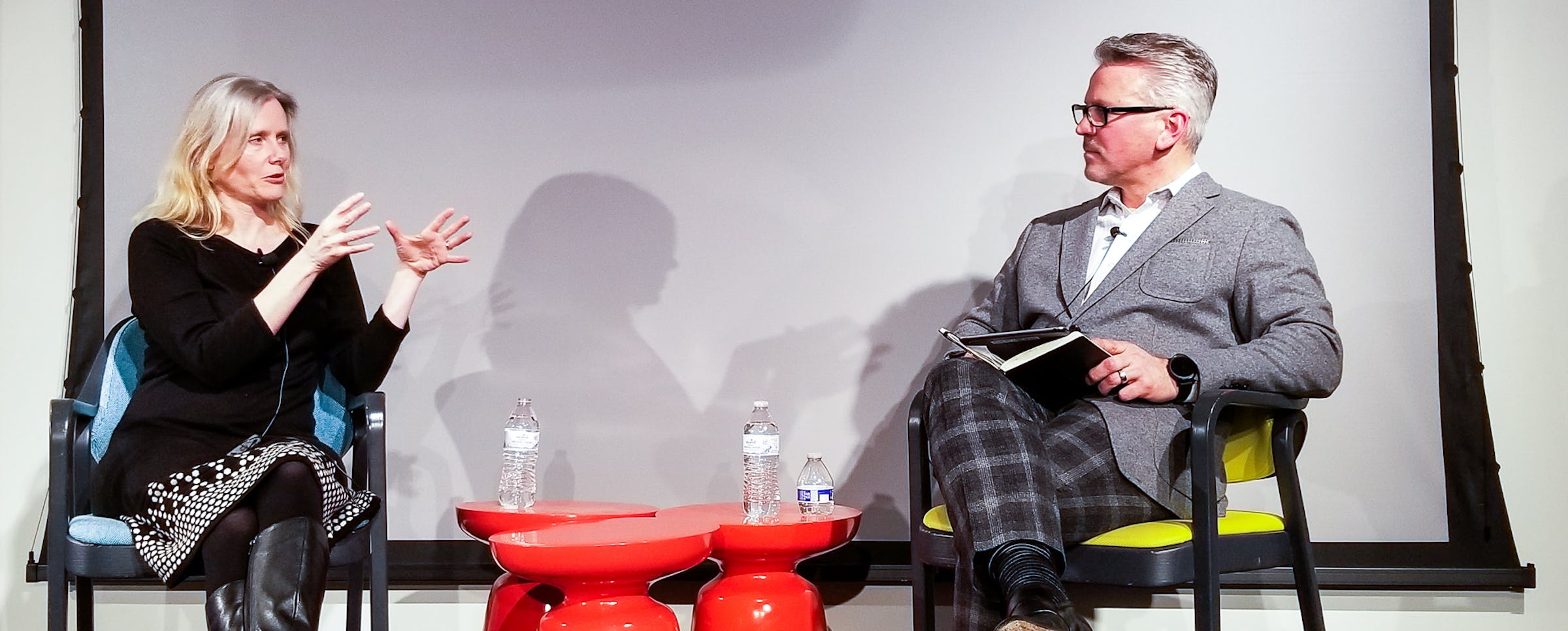The evolution of health data: A fireside chat with J&J Innovation’s Rowan Chapman
With the evolution of technology, health data has advanced far beyond the individual, static data point of the past. But while this advancement promises to improve human health, it also raises big questions: Who owns the data, who controls it and how do we connect it to deliver value to patients?
On February 5, Rowan Chapman, head of J&J Innovation, California, joined us at MATTER for a fireside chat to discuss the evolution of health data over her incredibly unique career — one that spans big companies, startups, academic institutions and venture investment firms. She sat down with Tom Kawalec, managing director at Accenture’s life sciences practice, to share her perspective on some of the most pressing and unresolved questions in health data today.
Below are some of our key takeaways from Rowan’s talk.
Use data as a means, not an end.
“You have to take it up to the level of what products are going to improve healthcare outcomes. Work with that goal in mind — with what’s a meaningful difference to the patient. Target that and then ask the questions. And the first question is whether that patient wants to release their data, and why. Then we can make sure that patient is protected if they release their data.
“You need the data in order to measure whether your product is making a difference or not for that patient.”
Protect the patient’s desires.
“On the genetic side, we end up with databases of populations of people with their genomes sequenced, connected to their phenotype and their outcomes. “We have to be really careful about permissions. What you don’t want to do is reveal, to somebody who doesn’t want to know, that they actually have a variant that is going to lead to something that is incurable. So again, you have to protect the patient and my personal belief is that you have to reverify [what the patient wants] every time.”
People as stewards of their own data
“I personally think that the data coming from an individual is data about themselves. I think that companies will create unique data sets but I don’t think anybody’s going to own all the data…Over time, individuals are going to be the stewards of their own data just the way they are the steward of their own finances. They partner with large companies, like J&J, to make sure the right clinical studies are done and make sure the drug products and medical device products have appropriate clinical data.
“There are certain data that people do own, like the quality control metric data on a device. That’s data the provider of that device owns. And then there’s data about the human condition that comes from individuals. So [healthcare organizations] do own pockets of data. Different people own the data, and then there’s a set of different people that control it. You have to look at who owns it, who controls it, and most importantly, for the question they’re asking, which parts of the data do they need to connect? I don’t think they have to own it all. I think they have to connect it all and then deliver the right results from it.”
On the evolution of digital health
“I don’t think we’re going to be talking about [digital health] in a few years time because I think it’s going to become natural and we’ll have gotten used to it.
“What is the tipping point to turn from us saying ‘digital health’ to ‘health’?. What caused that transition in other industries? It was because it delivered something of value to that individual, to the consumer. It caused everybody to switch to that kind of mode. I cannot imagine going to a bank; it’s much more convenient to use digital banking.”
Focus on the problems that need to be solved.
“Don’t get lost in the hype. AI, ML, all of those things — they’re tools. Don’t get lost in the hype, focus on the problems and then take a really careful look at what’s coming along technologically. What’s going to be possible in the next few years from the technology perspective, and what will that enable you to do that wasn’t possible before?”
Want to hear from more healthcare innovators like Rowan? Attend a MATTER event. Jeff Margolis, CEO of Welltok, joins us at our next Tales from the Trenches™ on March 5.



